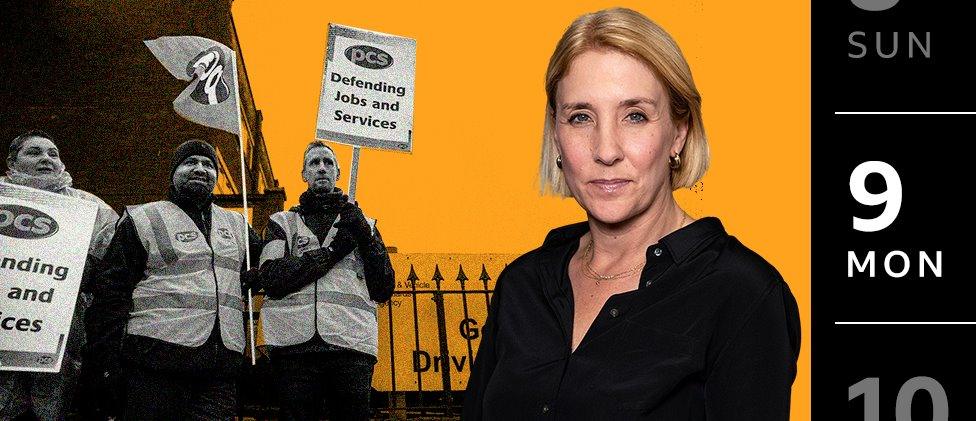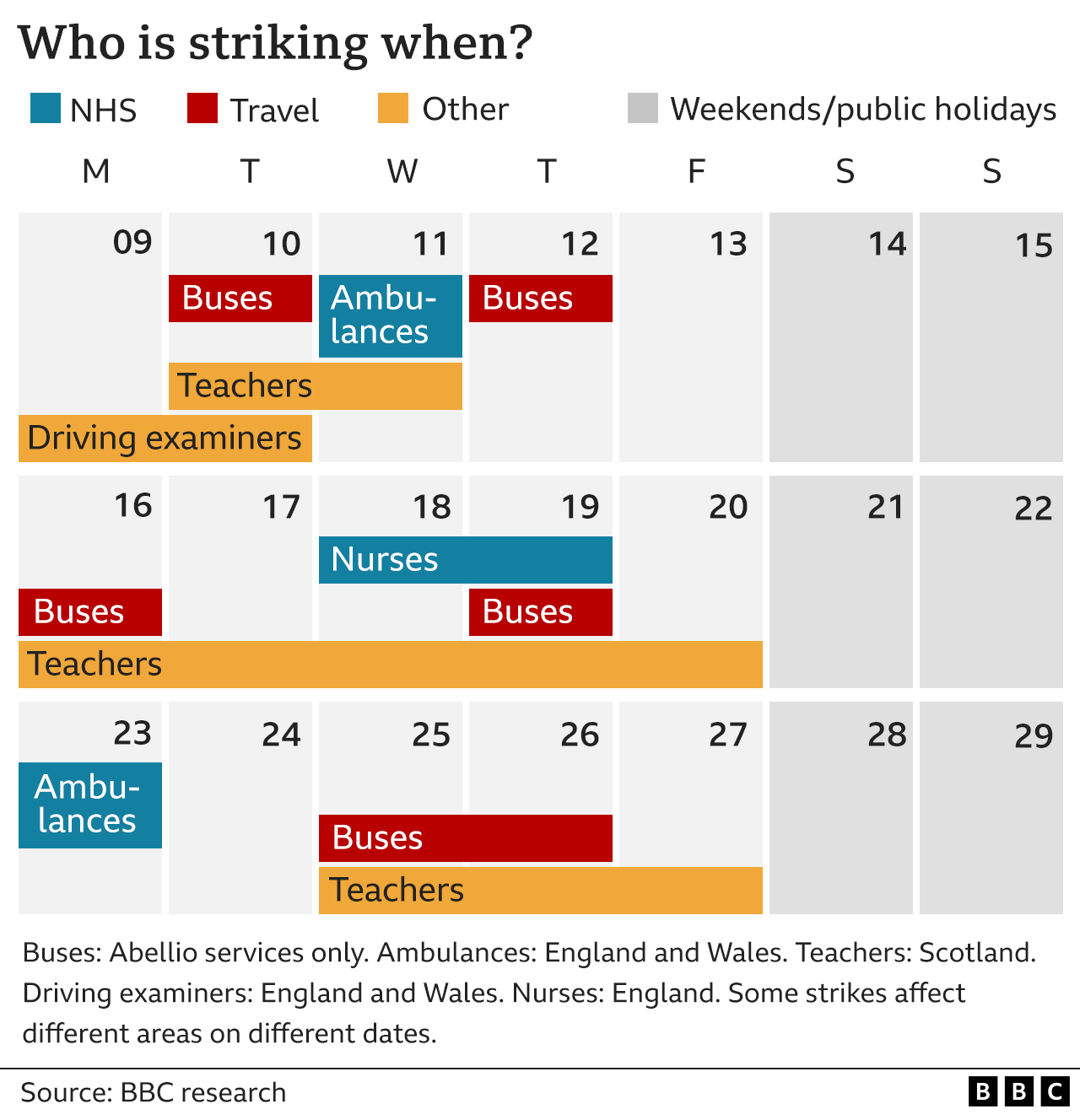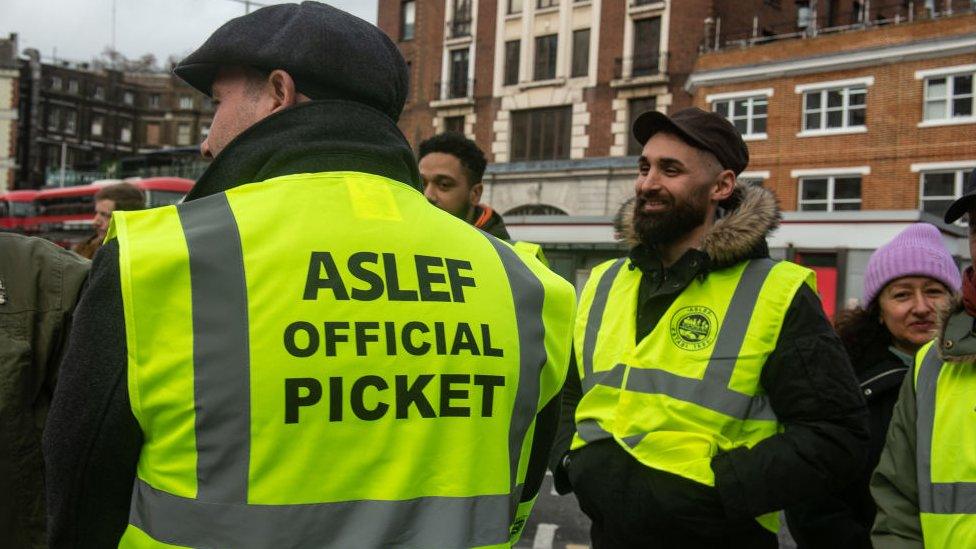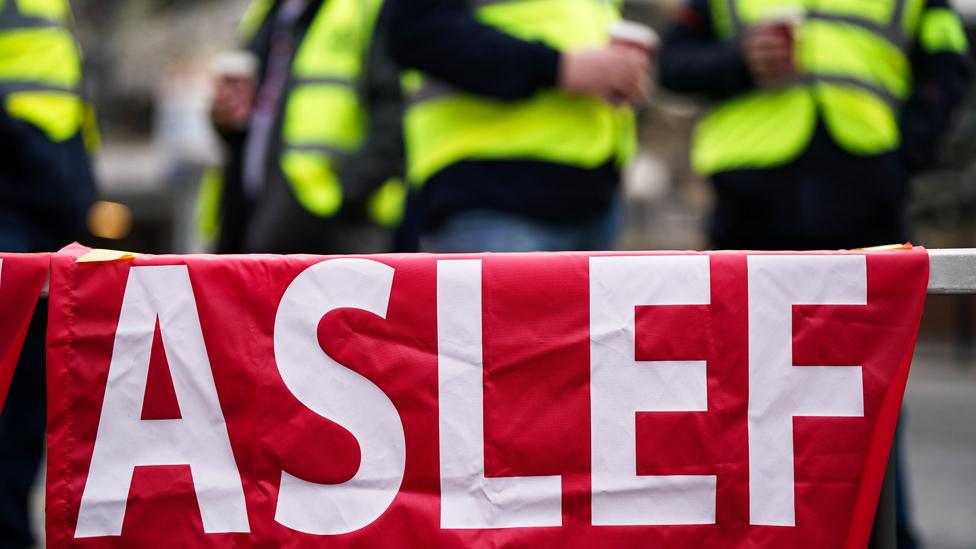Strike daily: How Monday 9 January strikes will affect you
- Published

Most train services are back to normal on Monday, for the first time since Christmas.
But one train operator, Chiltern Railways, is still warning passengers to expect disruption.
The main strike action on Monday is by driving examiners.
Looking ahead, ambulance workers in England and Wales will strike for 24 hours on Wednesday.
Some bus drivers, and teachers in Scotland, will also strike this week.
We'll bring you another update on Tuesday to explain how these may affect you.
You can read more or watch this report about why people are taking strike action, and below you can find information on how it could affect you.

Driving tests
Monday and Tuesday this week will be affected by ongoing strikes by driving examiners over pay, pensions, jobs and redundancy terms.
Strike action is continuing at test centres in London, south-east England, south-west England and Wales.
The action, by members of the Public and Commercial Services (PCS) union means some practical tests will not take place, although theory tests should go ahead.
Car, motorcycle, lorry, bus and minibus tests are among those that may be affected, according to the DVSA, external.
If your driving test is due to take place on Monday, you can check here, external whether your test centre is affected.
Not all examiners are members of the PCS union so your test may go ahead as planned.
Unless you are told your test is definitely cancelled, you should still turn up.
If your test is cancelled because of the strike, the DVSA will automatically rebook your test for you.
DVLA staff
Workers at the DVLA will launch a five-day strike on Monday over pay, pensions and jobs.
Members of the PCS union based in Swansea and Birmingham will be taking action.
Some 600 workers who are responsible for things like maintaining the database of everyone's driving record and of all of the vehicles in the UK, are expected to take part.
It forms part of the union's national campaign after 100,000 civil servants in 124 government departments voted for action.
The week ahead
Ambulance workers in England and Wales will strike for 24 hours on Wednesday.
Services in London, Yorkshire, the North West, North East and South West of England will take action over pay and staffing.
The strikes will each last for 24 hours from midnight, the Unison union has said, and will involve all ambulance employees, not just 999 response crews.
Life-threatening calls to 999, as well as the most serious emergency calls, will still be responded to, the union has said.
Teachers in Scotland will also strike on Tuesday and Wednesday, and Abellio bus drivers will strike on Tuesday and Thursday.
Government ministers are due to meet a number of unions on Monday for talks, including teachers unions and health unions. These meetings will be about pay next year.
Currently there are no further rail strikes scheduled. Meetings between the rail minister, industry representatives and union leaders will take place on Monday in a bid to break the deadlock over pay and conditions.


How are you affected by the strikes? Are you taking part in strike action? You can email: haveyoursay@bbc.co.uk, external.
Please include a contact number if you are willing to speak to a BBC journalist. You can also get in touch in the following ways:
WhatsApp: +44 7756 165803, external
Tweet: @BBC_HaveYourSay, external
Or fill out the form below
Please read our terms & conditions and privacy policy
If you are reading this page and can't see the form you will need to visit the mobile version of the BBC website to submit your question or comment or you can email us at HaveYourSay@bbc.co.uk, external. Please include your name, age and location with any submission.
Related topics
- Published7 January 2023

- Published5 January 2023
